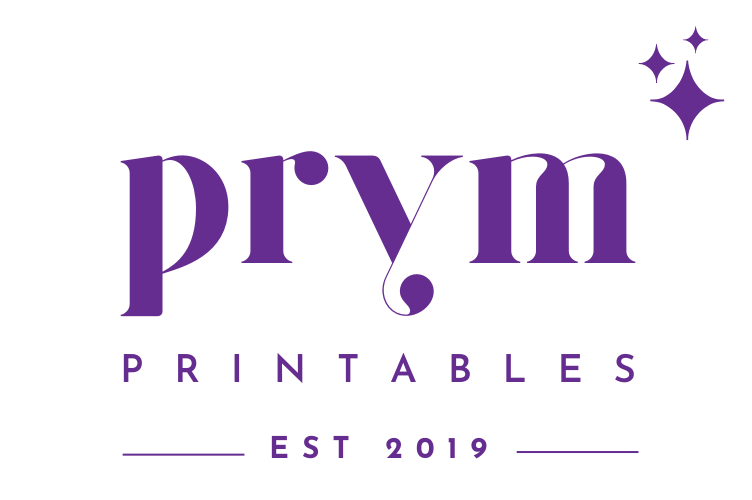Your cart is empty. Add from Wishlist
Do you know the number one dumb money mistake millennials make that makes them broke and poor?
Answer: NOT creating a BUDGET… and following one of the three best budgeting methods today.
It’s not just millennials who commit this sin. Baby boomers and Gen X-ers are all the more guilty of not having one in the first place.
And it’s not about the money you make.
It’s about how much you keep… and how it works hard for you!
But more on the latter in a future blog post. Let’s focus our attention on the B-Word that everybody entering the adulting phase must get acquainted with.
Many people fear the word budgeting. You may even have this belief that budgeting will tell you not to spend. That, of course, is a myth! Instead, budgeting gives you the power to spend your hard-earned money in the right way. It’s a way of showing your money who’s boss!
I know a lot of people who are slaves to money. Heck, I was once a slave to the Almighty dollar. You know, I was working my fingers to the bones, barely making ends meet, and rewarding myself for all those sufferings by splurging, throwing caution to the wind, without being so sure if I will survive the next week. I thought at the time I was the boss. Turns out, I was the slave and a dumb one at that!
I understand why people are afraid to budget. It’s human nature — we fear what we do not know. So let me tell you everything about budgeting and the three stress-free ways of doing it!
What is Budgeting?
A straightforward definition of budgeting is that it’s a PLAN. A plan for what you will do with your money. A strategy on how you will handle what’s coming in and what’s going out. When you give your money purpose, you will never be left scratching your head wondering where it went.
Budgeting is not about restricting your spending. In fact, it gives you a blueprint of how much you should spend on different spending categories. Instead of money dictating your choices, you are taking the driver’s seat and actively deciding where your money should go.
Why You Should Budget
Admit it. Most of the time, you’re powerless. You feel powerless when an ad connects with you emotionally when you feel like you’re missing out, and even when you see friends buying the newest, the latest, the grandest and you still haven’t. I’m even rendered powerless simply by watching someone eat something from Jollibee online.
A budget is like that dear friend who approaches you and slaps you with the inconvenient truth. It sometimes forces you to confront yourself, telling you “I don’t think you can afford that for now, love.”
And then it comforts you by saying “Don’t worry. If you stick to your budget, you can do whatever the crap you want to do with your life later.”
My point is when you make a budget you can compare your income to your expenses. If you learn that you’re spending more than you make, you can make the necessary adjustments to your spending right away and avoid consumer debt.
Not sure why you’re still broke when you’re making too much?
You might want to limit your Starbucks visit to twice a month and just brew your cuppa at home. Simply making some changes to your spending can make a whole lot of difference!
If you’re living paycheck to paycheck or getting debt up to your eyeballs, you should budget. Even if you are living comfortably with decent savings, you should still budget. Remember, money is a limited resource. You’ll never know when you’re actually, immediately going to need it!
A budget helps you get ahead of your money, achieve your money goals, and knock debt out forever!
Anyone can budget, even when you think you’re not making enough (especially).
The 3 Best Budgeting Methods to Use
There are more than three budgeting methods out there, but I’m going to share three of the most popular strategies that have worked for many people in managing their finances. Of course, the best budgeting technique is the one you’ll stick to. That’s going to be different for everyone, so you’ll have to probably want to try them all out first to see which works best for your situation.
The Zero-Sum Budget

You can call it a zero-sum, or zero-based budget, and it simply means all your income minus all your expenses must be equal to zero.
This doesn’t literally mean that you are going to spend all of your money. The idea is that you are giving every dollar or peso you earn a purpose.
Whether it’s for paying your bills, debts, food, recreation, or savings, every amount that comes in must be assigned to a budget category. You are going to treat those categories as accounts that you need to pay for.
So, if you make Php 25,000 a month, you’re giving all your Php 25,000 a job. Add in all your income and then subtract all your expenses for the budgeting period. The result should end up at zero.
E.g.
Total Income: Php 25, 000
Expenses:
Savings – Php 4,000
Retirement Fund – 2,000
Bills – Php 6,000
Food – Php 7,000
Recreation – Php 3,000
Miscellaneous – Php 3,000
Total Expenses: Php 25, 000
Income: Php 25, 000
Expenses: – Php 25, 000
Equal to: Php 0.00
Here’s an important reminder: Your bank account should never equal zero, only your budget should hit zero every month! This is because your budget every single amount you get.
This type of budgeting works best for those living paycheck to paycheck. However, I personally do this kind of budgeting. It gives me an excellent view of where my money is going and helps me put the biggest focus on reaching my financial goals.
With this method, if you were to save and spend exactly what was in each of your budget categories, you wouldn’t be positive or negative. You would literally be at $0.
You can go digital to make this method work, but I find manual budgeting on a budget notebook (or any notebook for that matter) easier to follow through. There are also printable budgeting worksheets that you can download to help you do your manual budgeting.
You can even get a FREE one simply by subscribing to this blog!
Envelope Budgeting or Cash-Only Budgeting

This is an old-school way of budgeting, which I also love and practice along with the zero-sum budgeting method.
Cash-only budgeting is where you use actual cash as your spending money. With this budgeting style, you immediately withdraw cash for your monthly/ fortnightly budget. You allocate the withdrawn money into separate budget categories. You then place the cash in the envelopes labeled to match your categories.
Once the cash in a particular envelope is gone, it’s really gone. You stop spending on that category and avoid stealing from other envelopes.
For example, if you budget Php 5,000 for your monthly groceries, you will only put that specific amount into your envelope labeled “Groceries”. As simple as that!
If the total cost of the groceries is more than your budgeted amount, you may want to put some items back on the shelves where you got them from.
This is the best budgeting method for those who struggle with overspending. This forces you to stop spending once you’ve reached your limit or have exhausted all that’s inside the envelope. It gives you the power to focus your money on the most important things. Cash envelopes even allowed me to save as much as 60% of my income! I’ve detailed this in another blog post.
You can DIY your budget or cash envelopes by purchasing printables. Or you can simply go to your local supermarket and buy a few envelopes to get started. I love myself some good old DIY though, so my cash envelopes, which are available on Etsy, are so darn cute.
The 50/20/30 Budget
This is perhaps the most common budgeting method finance experts advise you. The basic premise is that you split your income into three broad categories: 50% to needs, 30% to wants, and 20% to savings.
At the moment, since I want to achieve my money goals faster, I’m not using this budgeting method. I want to allocate a bigger percentage to my savings. I feel that saving 20% of my income won’t be enough for me to reach my savings goals faster. The progress would be very slow if I stick to just saving 20% of my income. How I wish I can achieve Graham Stephan’s level of budgeting, wherein he saves 99% of his income. Of course, the dude makes $220,000 a month. LOL!
The 50/20/30 budgeting strategy is best for people who are generally comfortable and in a good financial position. If you don’t want to micromanage your money, you might also want to give this budgeting method a try.
It’s the simplest budgeting method out there wherein you only have 3 categories to worry about.
The problem with this method though is that you might be prone to overspending, and your progress might be slower toward reaching your money goals. However, to remedy the former, you just need to overestimate your budget. That way, you’ll have some wiggle room when spending and not worry about overshooting your spending limits.
Final thoughts
My budget is a combination of two different kinds of budgeting methods: the zero-sum budget and the cash-only (envelope) budget.
Why two?
It’s because I love planning where all of my money goes. The zero-sum budget method gives me the ability to micromanage my finances and see where I am mostly spending my money. It allows me to develop my strategic and problem-solving skills by tracking and reviewing all of my spending and making some adjustments to it so I can set up a fail-proof system each month.
And since I used to be an overspender, this is where Dave Ramsey’s cash envelope system comes in.
Don’t be too hard on yourself if your first three months of budgeting aren’t perfect. It’s okay! Just like learning how to ride a bike, budgeting is a skill that requires constant practice. Sure, it sucks at first, but you’ll eventually get the hang of it later on and be so great at it that you can even budget in your sleep.
And if something isn’t on your budget, learn to say NO or not now. Learn to say later – when you can save up for it and it’s finally on your budget.
It’s way easier to achieve your money goals when you’ve got a budgeting tool on hand. You should have a budgeting tool that allows you to easily look at historical data, review, and reflect on your past financial activities, so you can make adjustments in the future.
Budgeting can be tough, but you are tougher!
I believe in you. You can do this!












